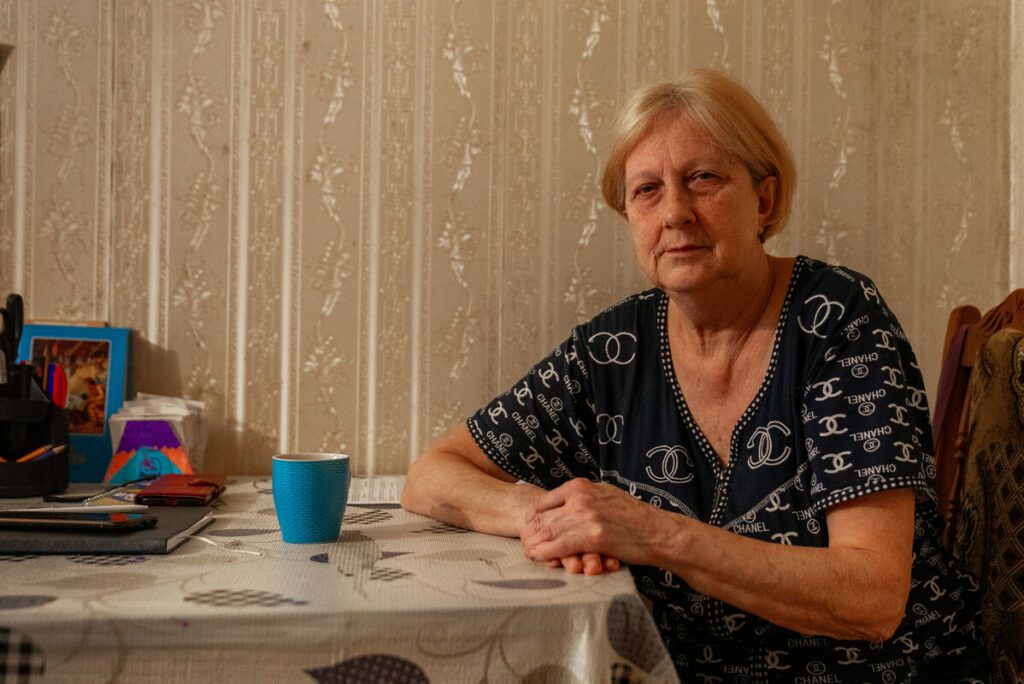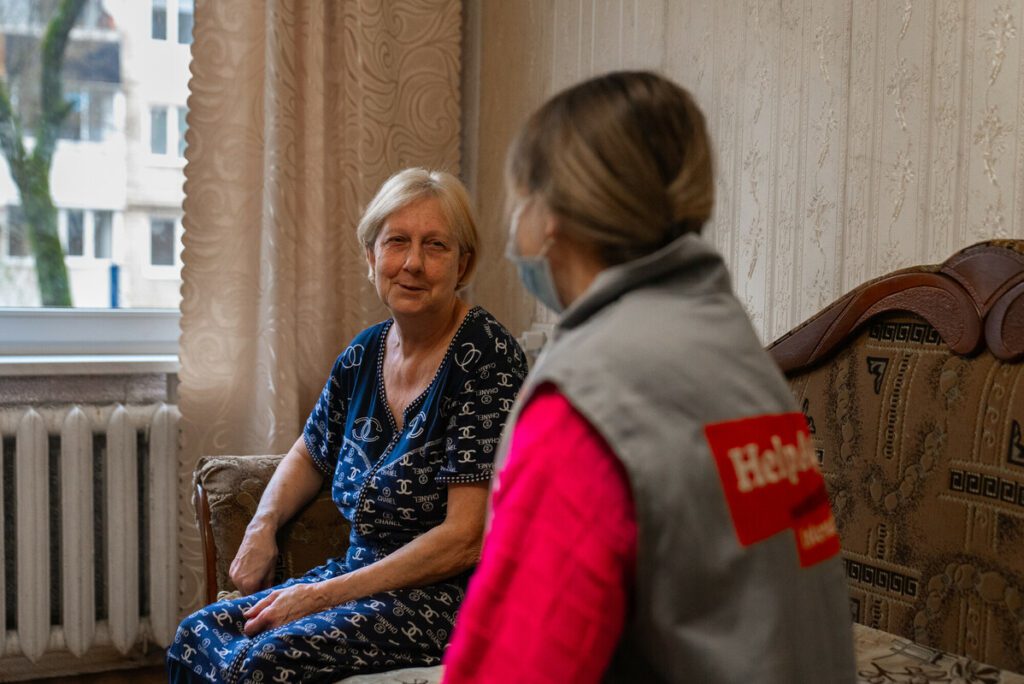
"I pray for peace every day."
Nataliia, 67
How do you navigate life when your country’s at war and you’ve been displaced?
For Nataliia, aged 67, leaving her one-bedroom apartment in Sievierodonetsk for the bunker in her building felt like a suitable concession to the chaos around her.
She spent a month living underground, cooking on an open fire outside with her neighbors. Eventually, her building was hit and their bunker flooded with sewage. Nataliia still didn’t want to evacuate so, with her neighbors, she relocated to another bunker in town.
“When the buildings started to burn all around us, myself and other people decided to leave. Police helped us evacuate to Lysychansk. From there, we took a train to Lviv, where my daughter was.”
She is now living in a small rental apartment with her daughter and grandchild, who is enrolled in school. Nataliia is officially one of Ukraine’s millions of displaced, forced to forge a life from scratch, the practicalities of which are endless.
Thankfully, she has a HelpAge International social worker to help her navigate the system. She’s visited regularly, given information on humanitarian assistance, and provided with psychosocial care and guidance on where she can find necessary medicines or medical care. But life is far from normal. This stage of forced evacuation can be particularly hard as people come to terms with the realization that a return home may never be possible.
“My town is dead now. All scorched. So the biggest hope is to find a new home. And peace. I pray for peace every day.”



